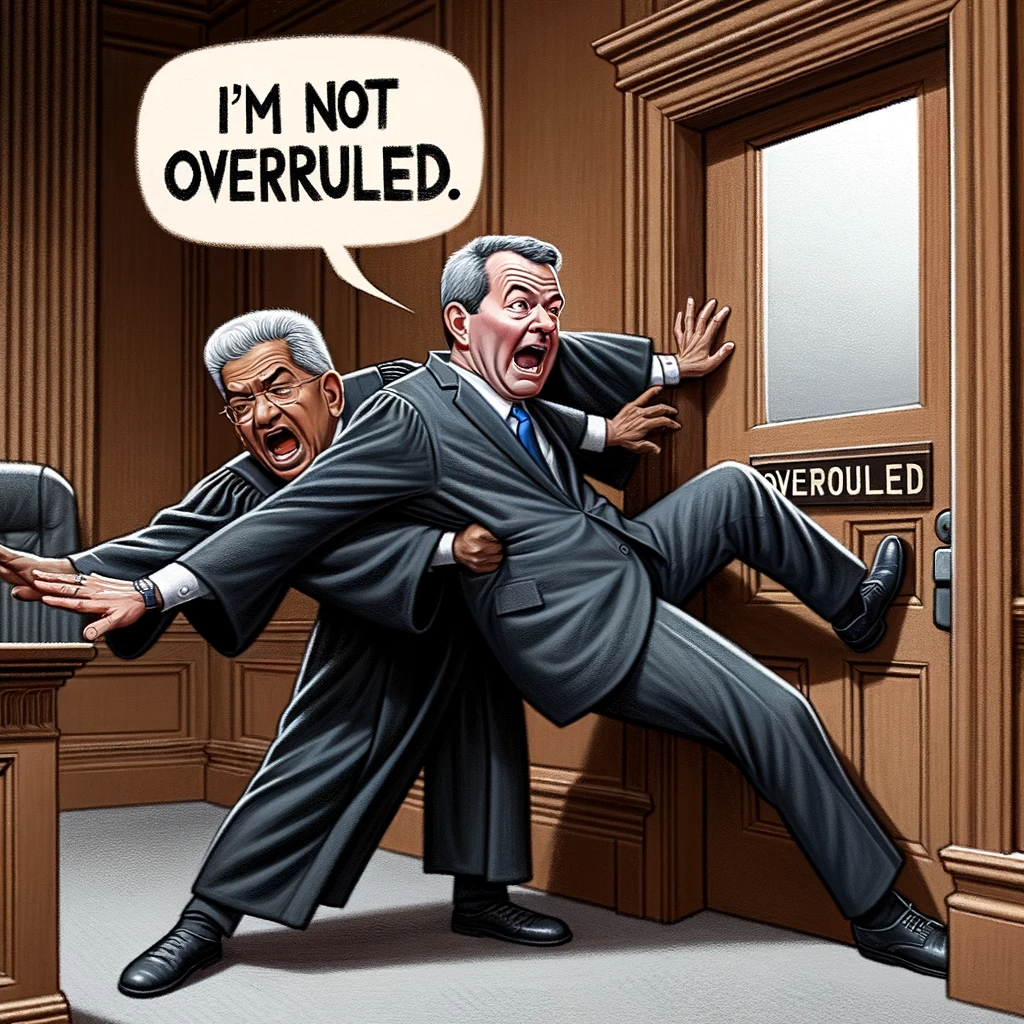
One big limitation in the 9th Circuit is that a three-judge panel is absolutely bound by a prior panel decision. Just see, for example, the recent panel decision in Martinez v. ZoomInfo Techs.: even though a majority of the panel disagreed with the precedent that anti-SLAPP denials are appealable, they had to go along with the precedent anyway.
But something a little different happened in Munoz v. Superior Court of L. A. Cnty., No. 22-55941 (9th Cir. Jan. 9, 2024), where plaintiffs sought to enjoin state court judges who were setting bail too high. The panel did not think much of the arguments, and noted that ordinarily judicial immunity and 11th Amendment immunity prevented injunctions against state judges.
But the precedent in Wolfe v. Strankman, 392 F.3d 358 (9th Cir. 2004), presented a wrinkle. Wolfe held that an Ex parte Young exception applied to allow injunctions against judges acting in their judicial capacity, despite judicial immunity and 11th Amendment immunity. That case involved judges making vexatious-litigant determinations. Could the plaintiffs here use the Wolfe exception to get an injunction against judges setting their bail too high?
Writing for the panel, Judge Nelson conceded that it’s true that Wolfe “can be read to hold that the Ex parte Young exception allows injunctions against judges acting in their judicial capacity.” And since Wolfe is circuit precedent, the panel is bound to follow it.
Not so fast, Judge Ryan says. The prior decision would be binding, except that Wolfe "is clearly irreconcilable with Whole Woman’s Health v. Jackson, 595 U.S. 30 (2021), and thus overruled."
But as Prof. Shaun Martin notes, “Jackson didn't make any new law. At all.” The only thing Jackson did in the relevant portion of the opinion was to cite and quote the holding of Ex Parte Young that "normally" you can't sue state court judges. And as Prof. Martin says, “Everyone knows that already. 'Cause Ex Parte Young said it.” So Jackson didn’t “overrule” anything, and, continues Prof. Martin, “I don't think it's right for Judge Nelson to say that Jackson overrules circuit precedent, thereby relieving the panel from its obligation to follow it.”
Another curiosity about Munoz: the panel that found the Wolfe panel’s decision was overruled included Judge William Fletcher, who authored Wolfe.
The court is given to loudly proclaiming its deference to prior panel decision unless overruled en banc or by the Supreme Court. So this maneuver to avoid following a decision that ordinarily would bind the panel is curious.
Hat tip to Prof. Martin who has lots more about the case here: http://calapp.blogspot.com/2024/01/munoz-v-superior-court-9th-cir-jan-9.html